Federal RAISE Grants Illustrate Widespread Demand for Infrastructure That Makes It Safer and Easier to Walk and Bike in Communities Nationwide
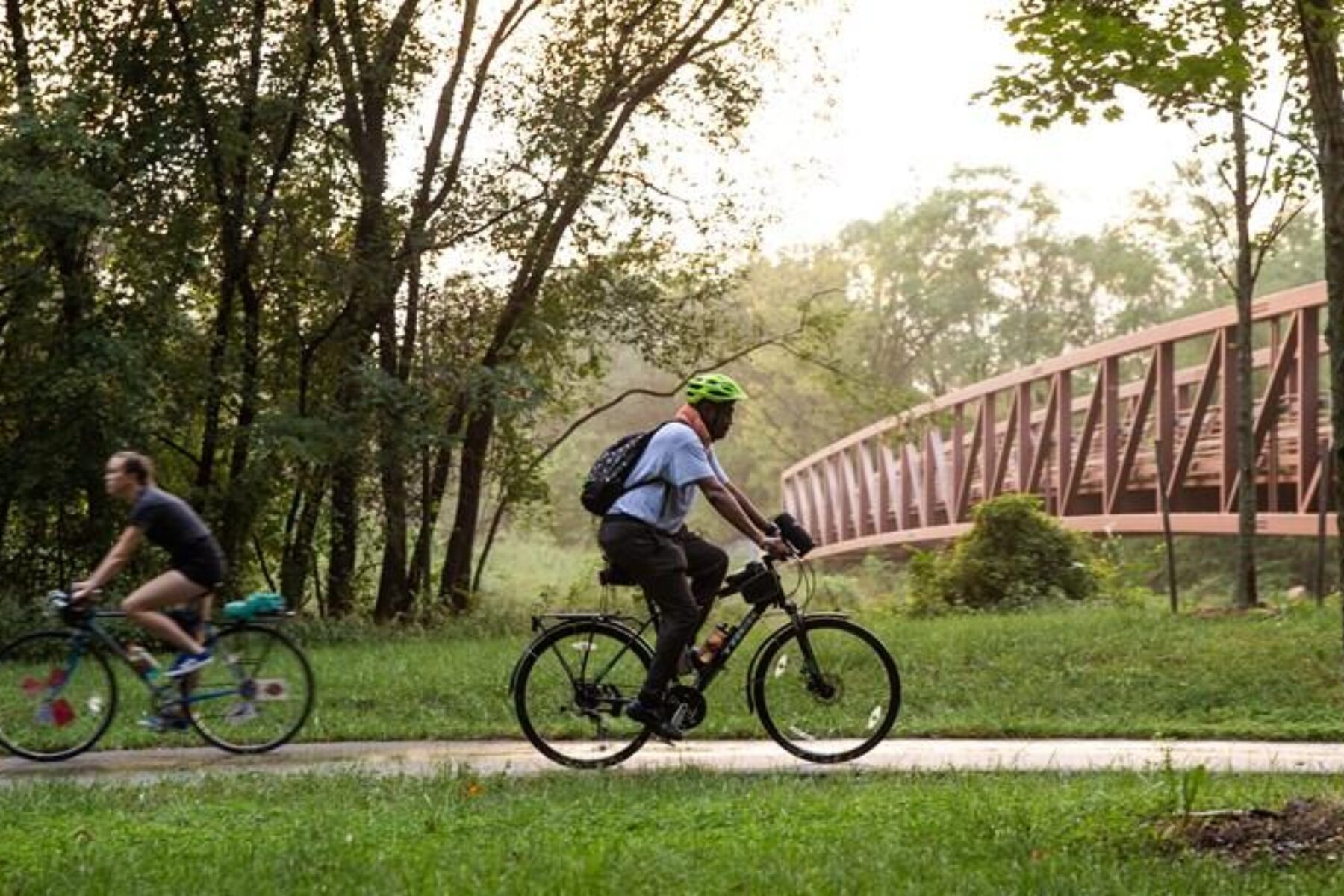
Rails to Trails Conservancy Analysis Finds Most Grant Awards Address Needs of Bicyclists and Pedestrians, and Many Fill Gaps in Active Transportation Networks That Provide Equitable Mobility Options for Rural, Suburban and Urban Places
WASHINGTON—The latest round of FY 2024 U.S. Department of Transportation (USDOT) RAISE Grants reinforces the widespread demand for connected walking and biking infrastructure that exists in rural, urban and suburban communities across the country, according to an analysis by Rails to Trails Conservancy, the nation’s largest trails and active transportation advocacy organization.
Nearly one-quarter of all FY 2024 RAISE grants awarded (23.6%), totaling more than $425 million, were for projects entirely focused on trails, walking and biking, with many emphasizing infrastructure investments that would create more connectivity within neighborhoods and between regions. Sixty-four percent of projects included elements to support safer walking and biking.
“Demand for connected walking and biking infrastructure continues to grow for communities of all sizes and types due to urgent needs to prevent traffic crashes and improve access to economic opportunities,” said Kevin Mills, RTC’s vice president of policy. “With each round of federal infrastructure grants, we continue to see an influx of projects that close gaps in trail and active transportation systems to create new connections and mobility options for people across the country. These are the investments that make communities function better for everyone—necessary improvements that local leaders are championing and Congress is celebrating.”
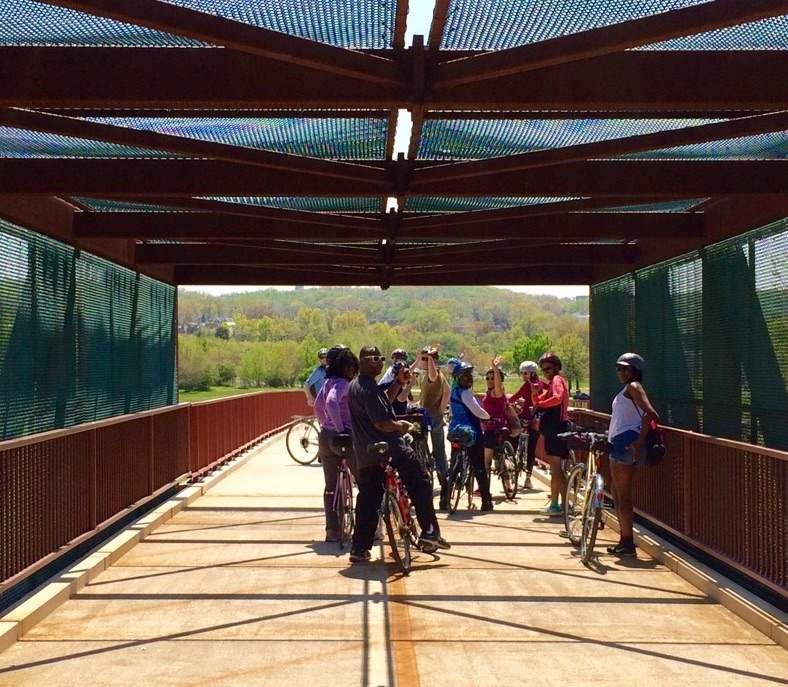
Among the awards were several significant trail-network projects across the country, which are creating new access to safe routes where people can walk, bike and be active outside, particularly in underserved and historically disadvantaged communities. In Washington, D.C., $25 million will create new access to the regional trail network, and in Baltimore, a portion of a $15 million grant will be used to connect South Baltimore with the developing Baltimore Greenway Trails Network, a 35-mile trail loop throughout the city. The City of Waukesha, Wisconsin, received $1.1 million to design two key trail bridges within the regional Route of the Badger trail network, addressing safety concerns at highway intersections. All three trail networks are part of RTC’s TrailNation™ initiative, a nationwide effort to catalyze trail and active transportation networks for millions of Americans.
Searcy, Arkansas, secured $4.2 million to plan and design the Little Red Greenway, linking Kensett to downtown Searcy as an expansion to the existing 5.5-mile Searcy Bike Trail. And Sen. Patty Murray celebrated investments for Washington State trails that include $25 million to close the final gap in the Eastrail regional trail, creating 42 miles of walking and biking access that supports quality of life and economic development in King County.
This round of awards adds to the far-reaching support for trails, walking and biking that has been demonstrated consistently by Congress and the USDOT under the Bipartisan Infrastructure Law, including FY 2023 RAISE grants supporting walking and biking projects in 48 states and Washington, D.C., and the recent Reconnecting Communities and Neighborhoods grants, which included walking and biking infrastructure in 85% of all awards.
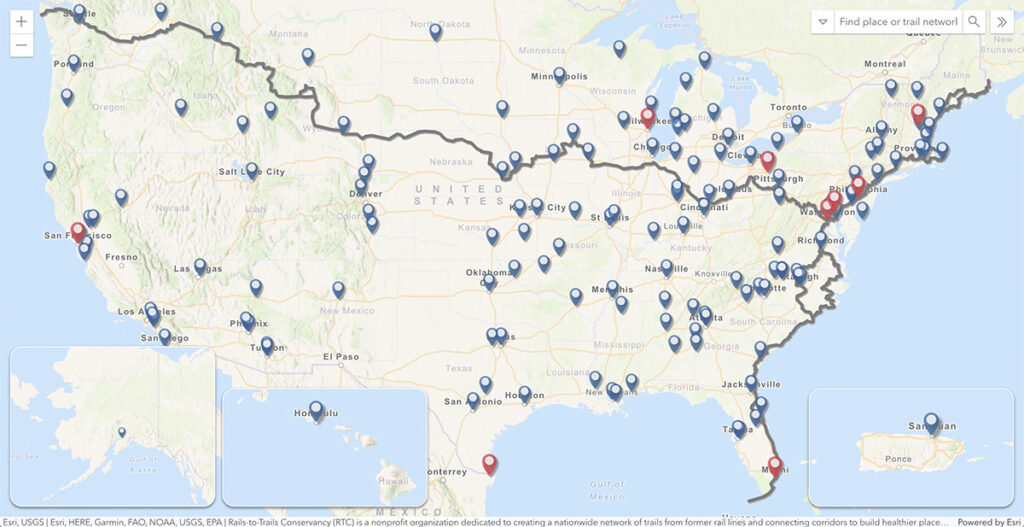
While these investments are significant, they continue to fall short of the total demand for connected active-transportation investments emerging in rural, suburban and urban communities across the country. RTC’s research has found that more than 150 trail networks are developing nationwide, with at least one in every state, necessitating a sustained, dedicated federal funding source to more quickly move these projects forward.
“The influx of federal investments in these projects under the Bipartisan Infrastructure Law shows a growing recognition by Congress and the USDOT of the significance of walking and biking to support safe, affordable and climate-friendly mobility. What is lacking, however, is the guarantee of consistent investment over time that a dedicated program would provide to ensure that gaps in these essential infrastructure networks will be closed,” said Mills. “We’re counting on Congress to channel their enthusiasm for these awards into an ongoing commitment to connect active transportation infrastructure by finally funding the Active Transportation Infrastructure Investment Program in FY 2025 and beyond at the level set by Congress in their last transportation bill.”
Nationwide, RTC has seen plans amounting to more than $10 billion of unmet need for projects that connect active transportation networks. According to RTC, fulfilling these plans would be transformative, with the potential to equitably deliver economic, mobility, health, safety and climate benefits. To realize these benefits, communities need sizeable grants—like those that RAISE can provide—to close gaps between existing sidewalks, bike lanes and multiuse trails to create seamless walking and biking routes that connect where people live and the places they go routinely. Current discretionary and dedicated federal programs deliver significant investments for trails, walking and biking, but many communities will not achieve their infrastructure goals without reliable funding at sufficient scale that is focused on active transportation. The far-reaching impact and demand for trails and other walking and biking infrastructure calls for programs that exclusively fund active transportation to ensure consistent progress over time.
RTC is advocating for transformative policies that increase funding for active transportation and create accountability for progress on climate, equity and safety goals, such as the Active Transportation Infrastructure Investment Program (ATIIP). This new program provides dedicated funding for the planning and construction of safe and connected active-transportation networks and long-distance spine trails. The program was authorized in the Bipartisan Infrastructure Law, and RTC, Congressional champions and partners across the country are continuing to advocate for full program funding in the FY 2025 federal budget.
Learn more about the demand for trails, walking and biking infrastructure and available federal funding at railstotrails.org/funding.
CONTACT: Patricia Brooks, patricia@matchmapmedia.com, 202.351.1757
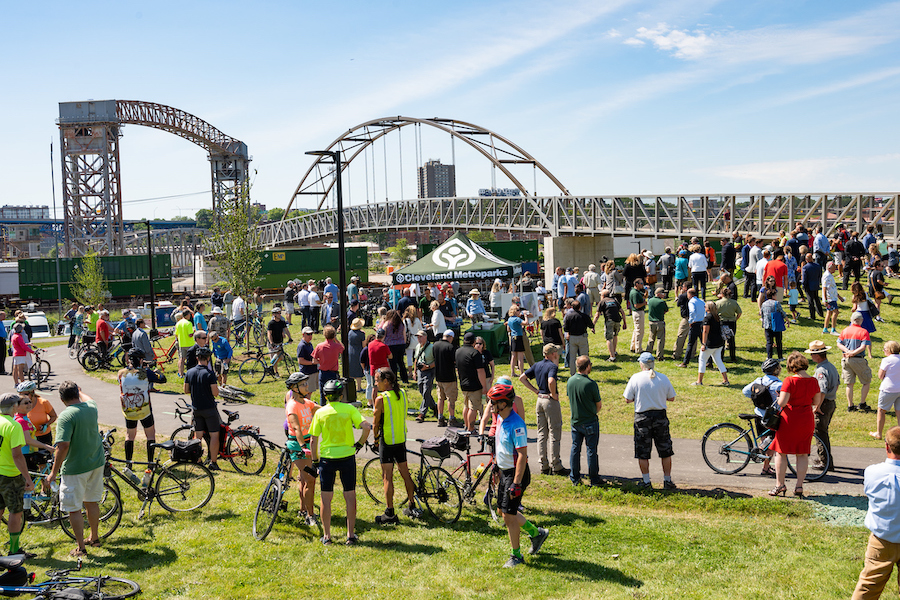
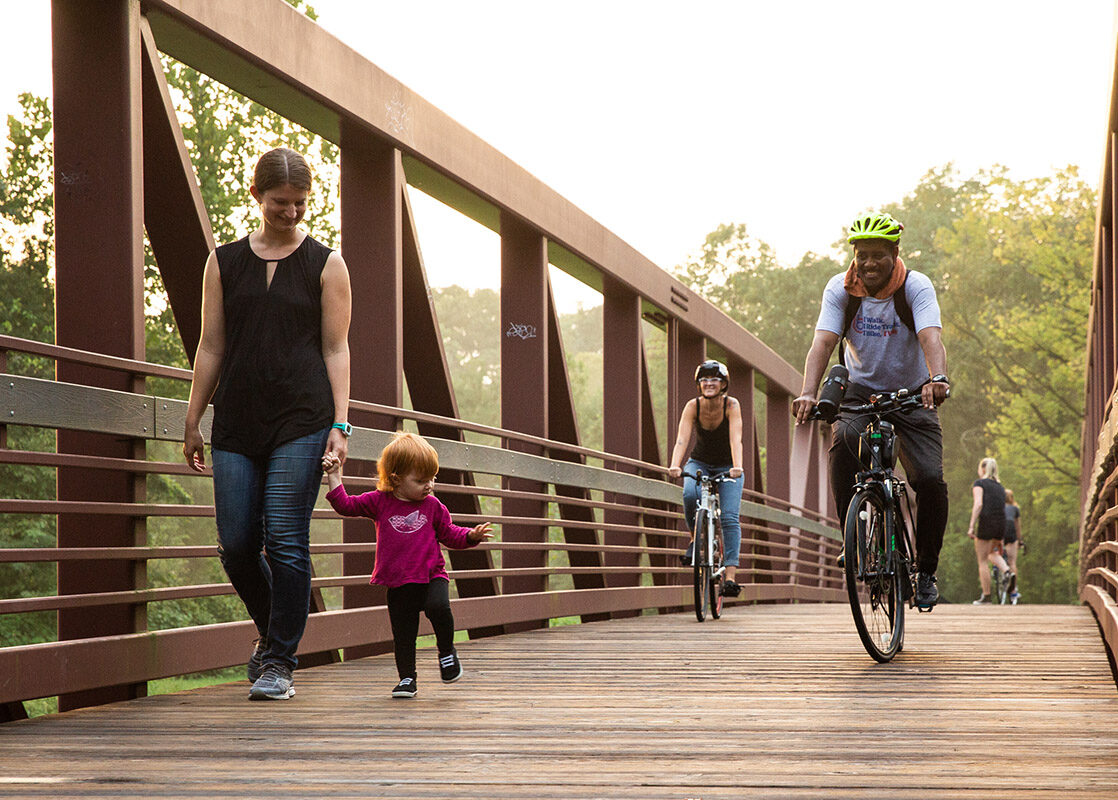
Donate
Everyone deserves access to safe ways to walk, bike, and be active outdoors.